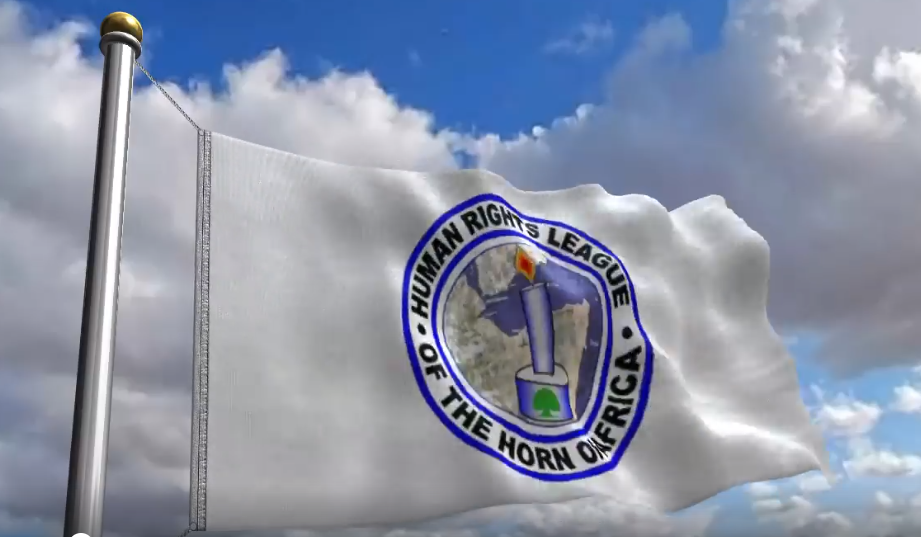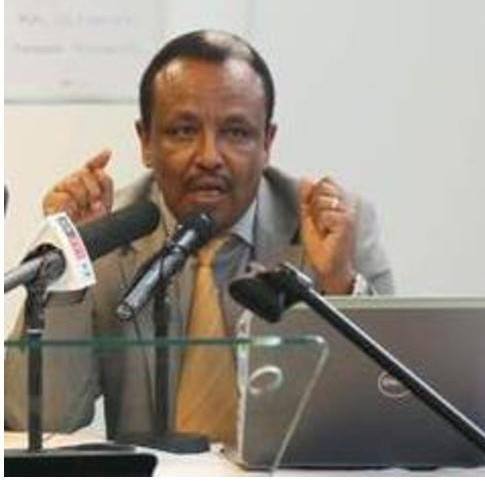June 20, 2020
Garoma B. Wakessa, Former Executive Director, HRLHA
Dear Participants of this meeting,
It is a pleasure for me to welcome all of you to HRLHA’s 2020 Virtual Annual General Meeting, which is taking place at a, particularly challenging time.
I would like to begin by thanking Dr. Benya Dugassa, the current OSA president and Mr. Solomon Germossa, one of the Journalists of ONN TV, for their willingness to co-host this year’s AGM.
It is very exciting to hold the first conference on HRLHA’s role in defending human rights since its formation in Ethiopia, when it received a registration certificate with the Ethiopian Civil Society Agency on 2 July 2019.
Previously, the HRLHA has been operating from remote Toronto, Canada. Since its formation in Canada in 2007, and although there were many challenges, it has discharged its responsibilities with very limited human and financial resources and has achieved unexpected results. We all can be proud of HRLHA’s tremendous achievements in defending the basic and fundamental rights of the people of the Horn of Africa in general- Ethiopia in particular – particularly when we think of the heinous human rights violations in Oromia regional state over the past twenty- seven years.
Dear Participants,
For HRLHA’s volunteers tireless efforts in observing and documenting credible human rights infringements and reporting human rights atrocities in the Horn of Africa /Ethiopia, the UN Economic and Social Council (ECOSOC)- one of the organs of the United Nations- awarded the HRLHA with a Special Consultative Status Award in 2011. This Award enabled the HRLHA to participate in UN conferences and meetings and submitting its reports of human rights abuses without limitation to the UN main organs including its subsidiary organizations and I think we can all be very proud of this great achievement: it is for ALL of us.
Dear participants,
I believe that we at the HRLHA have succeeded in creating an institution and a mechanism that links the voice of the voiceless in the Horn of Africa in general and in Ethiopia in particular to the outside world. We started to become the voice of the voiceless in 1996 in Ethiopia during the political turmoil in the country in which thousands of Oromos perished at the hands of the TPLF/EPRDF when that regime took over.
Eleanor Roosevelt (the First lady of the World), a great human rights defender, in one of her inspiring Quotes 1948-1953 said that “Where, after all, do universal human rights begin? In small places (…): the neighborhood (…); the school (…); the factory, farm or office (…). Such are the places where every man, woman, and child seeks equal justice, equal opportunity, equal dignity without discrimination. Unless these rights have meaning there, they have little meaning anywhere.”
In this sense, working towards and defending basic and fundamental rights, and in consequence working for peace, equality, justice, and freedom in small places, in our communities and the whole country and between nations and nationalities in Ethiopia, is a task for all of us.
Dear participants,
Today, the human rights situation in Ethiopia is more alarming than any year one can think under this reformist government. The cumulative gross human rights violations in the country reached levels of the atrocity which are equal to the Democide, the murder of any person, or people by government-sponsored killers. In cases where extreme violations of human rights have occurred, reconciliation and peace-building become much more difficult. Unresolved human rights issues can serve as obstacles to peace negotiations.
This is because it is difficult for parties to move toward conflict transformation and forgiveness when memories of severe violence and atrocity are still fresh in their minds. The Ethiopian government has continued to escalate its human rights abuses in violation of the Ethiopian Constitution and the International Human Rights Treaties it has signed and ratified. This has further deepened the longstanding human rights and political crises that have become the source of conflicts. Instead of implementing national and international mechanisms of conflict management to regain peace and stability and alleviate the country’s suffering, the government aggressively made a move to destabilize the peace in Oromia, and in Amhara’s special zones by killing and detaining civilians including women and children.
The conflicts between Ethiopians and the current government sometimes spill over beyond and exceed the ability of international law to help. As the number of victims grows and more individuals are taken prisoner, tortured, or executed, it becomes more difficult to resort to the legal path. Many internal conflicts involve a surge (Move fast, immediate increase) in organized violence. Genocide, crimes against humanity, and aggression against civilians have become a central part of warfare in these “internal” conflicts. Such violence often arises out of identity issues- in-group/out-group dynamics — and attempts of one ethnic or religious group to gain and maintain political control and to exclude other groups. Such conflicts are often not fought over principles or ideas, but rather focus on differences. Thus, attacks on human rights are often at the very heart of these internal conflicts
Besides, more inclusive, democratic values are needed to defuse exclusivist ideals. In the face of such violations, the opposition organizations operating in the country should stop being silent and must champion international legal norms and human rights principles. These human rights norms are central to the maintenance of civil society and necessary for grounding attitudes of tolerance and mutual respect within the country. Serious difficulties arise, however, when those in power are responsible for human rights violations. In this case, international intervention is necessary to stop the current atrocity in Ethiopia, particularly in Western, Wallagga, and Southern Gujii zones of Oromia Regional State.
Finally, let me conclude by saying that there is great strength in our shared commitment to doing everything possible to be the voice for the voiceless, in other words, it ensures the human rights of our people will be respected.
I am grateful to you all for the commitment you’ve demonstrated in attending this meeting and urge you to support the HRLHA’s committed volunteers who are at the forefront in defending human rights in Oromia, Ethiopia.
Thank you!

